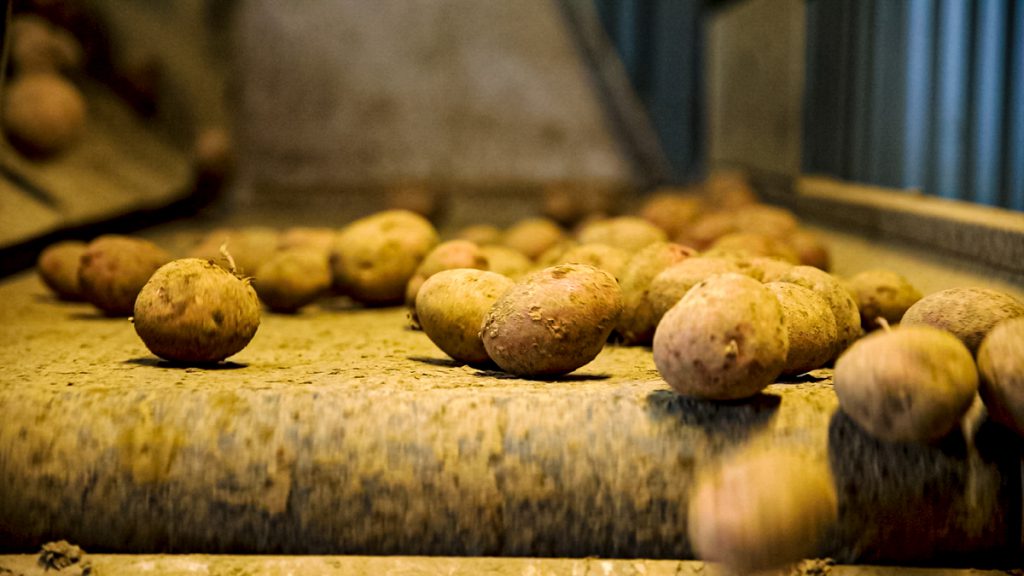The poultry chair of the Irish Farmers’ Association (IFA), Nigel Sweetnam said the sector is thankful that Avian Influenza (bird flu) has stayed away and there is “no threat” to the Christmas dinner.
However, there has been a “huge cutback” on the supply of farm fresh turkeys, with a lot of producers having to cut back to half of the stock they would have normally kept, he said.
While there are about 100 artisan turkey producers and up to 100 commercial turkey growers, fewer butchers and access to processing facilities are the main problems, he said.
There are one or two large turkey processing factories in Ireland, as well as a couple of smaller ones, he said adding that there is a risk of cross contamination in the supply chain.
The risk that a farm fresh turkey, especially a free-range one, brings salmonella or bird flu into a processing plant is “way larger” from small producers than from commercial producers.
Although expecting similar prices as last year, he said the danger is that supermarkets will pay a “good” price but discount the product and use it as a “loss leader” to get people into stores.
Potatoes and veg
There will be no shortage of potatoes for Christmas and the first couple of months next year, but supply may become tighter then with higher prices for consumer, IFA potato chair, Sean Ryan said.
Potato prices won’t go up between now and Christmas, he said adding that while prices vary between supermarkets, the cost of a 7.5kg pack would be between €7.50-€9.
Heavy rains in the summer months have washed the clay of the drills, leaving some potatoes vulnerable to rot in the field due to frost and could potentially only be harvested next spring, he said.

While the potato harvest ideally would have finished at the end of October, he said that, as of last week, there could be some growers that have 20-40% left to harvest, however areas differ.
Harvesting any root crop this year has been very tough, which has contributed to an increase in the cost of production, IFA fruit and vegetable chair, Niall McCormack said.
Yields are back with some carrots and other root veg that hasn’t been harvested. “It’s inevitable that there will be some imports, whether it is done now for Christmas or later on,” he said.
Grocery prices
Kantar figures show that in the four weeks up until October 29, 2023, grocery prices for a frozen turkey were 63% higher at €3.59 than during the same period last year.
Grocery prices in Ireland for a small fresh turkey, stuffing and 500g of carrots dropped when compared to last year by 1.5% to €5.88, 1.8% to €3.41, and 9% to €0.67 respectively.
The price of other Christmas dinner staples also saw significant increases. A 2.5kg pack of potatoes was 21.5% higher at €3.74 in the four-week period than in 2022.
Compared to last year, the cost of 500g of parsnips is now 32.4% higher at €1.16, while grocery prices for 500g of sprouts rose by 2.8% to €1.36, according to Kantar.
Grocery prices for Christmas pudding, mince pies and cranberry sauce rose by 57.2% to €2.33, 19.9% to €2.23, and 15.1% to €1.57 on the same period in 2022, Kantar said.
Christmas campaign
Meanwhile, the IFA launched its Christmas Campaign in north Dublin, which is the “heart” of the Irish horticulture sector, producing seasonal vegetables for the Christmas dinner.
“The work and investment by farmers and growers provides families with the highest quality food and drink for the festive season,” IFA president, Tim Cullinan said.

He added that consumers recognise the “commitment” of farmers and growers and they can see the benefits the farming sector brings to Ireland’s economy.
Cullinan reminded retailers of their responsibility to pay a viable price to producers, stressing that “price wars” between retailers are inherently damaging to growers.
The number of fruit and vegetable growers has been in decline for the past 20 years due to margin pressures exerted on growers from the top of the food chain, he said and added:
“The [horticulture] sector is on the brink of non-viability and needs immediate attention in order to retain grower numbers and fresh produce production in Ireland.”
An investigation into the food chain is needed as soon as the work of the newly established Agri-Food Regulator officially begins next week, according to Cullinan.
“Today’s food supply chain is dominated by a small number of big players. Their dominance is determining the livelihoods and future of farmers and food producers,” Cullinan said.
